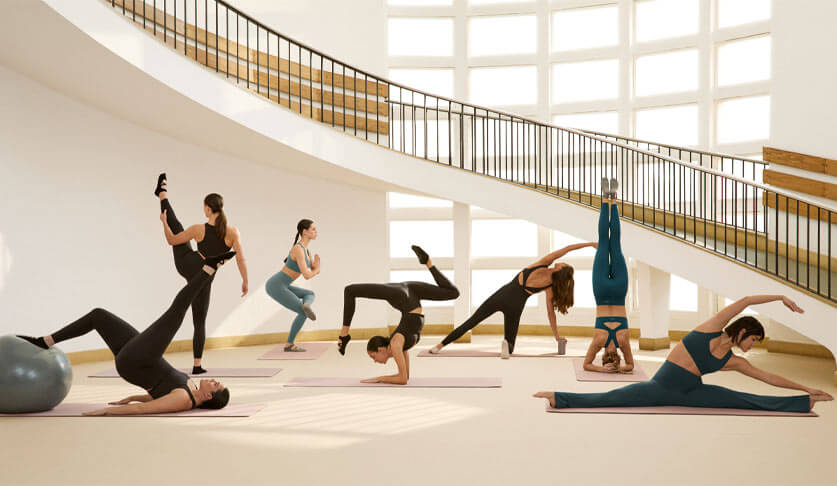LIFESTYLE
Kickstarting Your Fitness: Strategies for Effective Re-engagement
Lena Couffin - madame figaro
28-February-2024

Getting back into motion after a long period without exercise can require a considerable effort. How long will it take to see the benefits? Insights from a sports coach and a sports doctor.
One thing is certain: it's never too late to start exercising again, even after a long period of inactivity. However, it can be demotivating to start from scratch, to see one's level decrease and to wait before noticing the first results on the body and mind. So, how long should one wait, and what strategies should be adopted for an effective comeback?
We also recommend exploring another engaging fitness topic on our website: How much should we run?
Six weeks to build muscle
When reconnecting with sport, whether it's endurance or strength training, the production of muscle fibers is reactivated, increasing our muscle volume. "To start seeing muscle development, you should expect 6 to 8 weeks of practice," states sports physician Victoria Tchaikovski, assuming around 2.5 hours of exercise per week, spread over at least two sessions. Alternating between endurance and strength training will also show effects on the body.
From the first sessions, one will feel more toned, but it will take four to six months for the muscular results to be truly visible, meaning for the abs, arm muscles, and leg muscles to be defined. After these few months, the body's lean mass rate will have increased, the fat mass rate will have decreased, and one will appear more toned.
These indications, of course, depend on age, gender, weight, height, and individual body type. "Not everyone will gain muscle mass in the same way," warns Dr. Tchaikovski. It is therefore important to be your own benchmark and to only compare your current silhouette with the one you had before stopping sports.
Three weeks to improve endurance
Alongside the visible results on the body, the sensations experienced during effort will also evolve with regular practice. Thus, after 3 to 4 weeks of regular training, physical activity will become less tiring. "The body will have adapted to the sport routine established, the effort will be less strenuous, and there will be fewer muscle aches," affirms Dorian Louvet, sports coach and author of the book My Running Coach. Regarding cardio sports, within a month, we will regain our breath, our endurance, our heart will beat slower, and we will be less tired.
Experts agree, the mental effects of sport are almost immediate after resuming activity. From the first efforts, the secretion of endorphins will provide a sense of pleasure and well-being during and after the workout, asserts sports coach Dorian Louvet. This can lead to real improvements in mood daily, as well as a reduction in anxiety and stress. "Sport is also used in preventing depression and is part of the treatments to combat mild depressive states," highlights Dr. Tchaikovski. Resuming a sport will also promote faster sleep onset and better sleep quality, starting from the first physical activity session.A few weeks to regain previous levels
To avoid injury, it's important not to resume sport at the level where it was left off. In other words: progress gradually. The sports physician specifies that it might take a few weeks or even months to return to the initial level. If this is our goal, it's better to resume sport at 50% of our capabilities. The body will then be able to readapt to the effort.
For a gradual but motivating restart, sports coach Dorian Louvet suggests setting intermediate goals. For instance, in running, it's unnecessary to aim for the 10 kilometers one used to run initially. One might start by setting a goal of 6 to 8 kilometers during the first few weeks.
The importance of a healthy lifestyle
Finally, a healthy lifestyle is essential to achieve these results. Proper hydration, a suitable sleep routine, and a balanced diet are crucial. Our daily meals should include proteins, fruits and vegetables (either cooked or raw), and a source of carbohydrates through starchy foods (essential to provide energy to the muscles during effort). Sports physician Victoria Tchaikovski also suggests consuming fatty fish (like mackerel, sardines...) two to three times a week for their omega-3 content.








